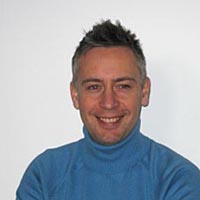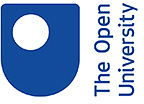You are here
- Home
- Cohort profiles
- Profiles 2013 (1)
Profiles 2013 (1)
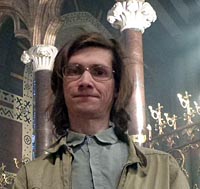 James Alexander Cameron
James Alexander Cameron
Art History, The Courtauld Institute of Art
I am an art historian working at the Courtauld Institute of Art on sedilia, the stone seats for the priest and his two assistants found in the chancels of English medieval parish churches. See my Courtauld research page Sedilia in English churches. Perhaps because of my rather obscure topic, I constantly strive to consider how ultimately my research may be made relevant to a wider audience.
Churches, my main interest and object of study are becoming ever more neglected parts of our heritage and their care, preservation and function faces an increasingly uncertain future. In scholarship often they are treated either as dry archaeological relics or in a rather ‘tweedy’ fashion. I wish to combine my passion for them with the rigours of art historical study to make them serious objects of study, but also to emphasise their aesthetic qualities.
I keep a blog about my church visits and research, Stained Glass Attitudes, partly as an experiment in trying to make my research accessible. I hope this programme can help me improve my skills in public outreach as well as how art history in general, not just the medieval, can engage a general audience without ‘dumbing down’.
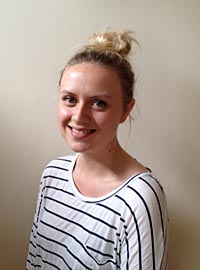 Victoria Cann
Victoria Cann
Political, Social and International Studies, University of East Anglia
I have enrolled on this course because although I have a strong outreach and public engagement record within the local community, I am keen to extend this to a much wider audience. This will improve my potential for greater academic impact across my career, particularly in the early stages when developing a public profile (especially as I will be submitting my first monograph for release in 2014). Additionally, I am keen to become a BBC/AHRC ‘New Generation Thinker’ and I feel that this programme will greatly enhance my application to this.
My research, which explores youth, gender and taste, has allowed me to develop a rich understanding of contemporary British youth culture, and I am keen to share this with wider public(s).
Central to my research, which is feminist in approach, is the emancipatory potential that it holds. I believe that if we can engage with adults and young people in accessible ways, and open debate about the limitations that norms of gender and age place upon those around us, we can begin to make changes that will have an impact far beyond the realms of academia.
- https://eastanglia.academia.edu/VictoriaCann
- https://twitter.com/_canndo
- http://canndo.wordpress.com/
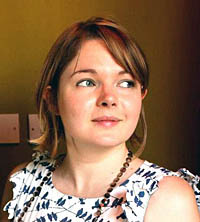 Barbara Cooke
Barbara Cooke
Literature, Drama and Creative Writing, University of East Anglia
I have recently finished a Creative and Critical Writing PhD at UEA, which was awarded for my interdisciplinary thesis ‘Oil Men: The Twinned Lives of Arnold Wilson and Morris Young’. As a biographer dealing with highly topical subjects (oil politics, the decline of the British Empire), it is very important for me to communicate with as wide an audience as possible. I do tweet (@DecafB) and keep an occasional blog (www.barbaracooke.net) but I’m sure I could be using these platforms more effectively. I’ve enjoyed being shortlisted for the New Generation Thinkers competition 2011 and am currently working on After the Archive, an AHRC-funded skills development programme that hopes to foster better, more collaborative links between a researcher and his or her community. I’m looking forward to building on these experiences during the programme, and especially to learning more about working with the media.
I’m interested in the advantages and potential pitfalls of becoming a ‘public intellectual’, in discussing what the term itself actually means, and meeting PhDs and ECRs who are interested in these issues too.
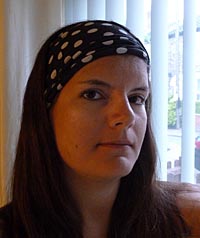 Coco D’Hont
Coco D’Hont
American Studies, University of East Anglia
I applied for the Public Intellectual programme because I strongly believe in the necessity of sharing my research with non-academic audiences. Not only because they can benefit from my work, but also because – as past experiences have demonstrated – I can learn a lot from them. In my view public engagement is more than an interesting side-project; it is vital for my work. I focus on norms and transgression, subjects which affect everyone on a daily basis. Taking my research outside academia has therefore provided me with crucial insights regarding cultural discourse and controversy.
Ever since the beginning of my PhD-project I have explored different forms of engagement. Besides taking part in training modules on outreach at UEA I have a blog (www.cococatani.wordpress.com) and share my ideas on Twitter (@cococatani). In addition I am involved in various outreach projects at UEA including What America Means to Me.
I would like to develop myself further as a public intellectual because engagement will be a major part of my scholarly career. Taking part in the Public Intellectual sessions would allow me to learn new skills, reach a wider audience, and bridge the gap between academia and ‘the rest of the world.’
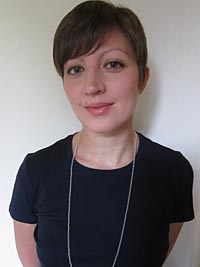 Catherine Daunt
Catherine Daunt
Art History, University of Sussex
I am reaching the end of my DPhil in Art History at a transitional time for the arts academic; opportunities for engaging with the public and working collaboratively with a broad range of institutions have never been more plentiful and available outlets for academic research are rapidly expanding. Having previously trained as a curator and gained five years experience working in public institutions, I am committed to sharing knowledge and skills with other professionals, and engaging with the public by making art accessible to all. I am excited by the way in which digital media in particular not only provides a platform for arts intellectuals to share their knowledge, but can also provide channels through which intellectuals can communicate directly with those setting the cultural agenda, and also with a broader public. As a 21st century art historian researching paintings primarily in public ownership, I feel a personal responsibility to ensure that I engage with both of these groups. I have enrolled on this training programme in order to learn more about the way in which I can do this and to benefit from expert advice to help me navigate the new professional opportunities available to me now and in the future.
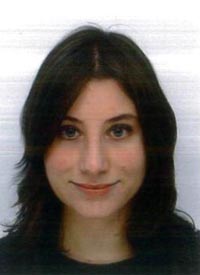
Kate De Rycker
English, University of Kent
I am part of an interdisciplinary PhD course called TEEME (Text and Event in early modern Europe), which is run collectively by universities in Kent, Porto, Berlin and Prague. As part of this programme, I have had the opportunity to visit various cultural industries in England and Portugal, and have also worked as a research intern at Shakespeare’s Globe. These opportunities have allowed me to see the ways that academics can engage with the public, but I wanted to learn more about the practical means of doing this myself.
My own work is on a group of Elizabethan writers, who were trying to forge a new public identity for themselves; not by unthinkingly imitating the great writers of the past, but by taking inspiration from their innovations in self-publicity and writing style.
Like these writers, I think that our own study of history should be a collaborative process, and hopefully make us think about our own time in a more imaginative way. This is part of the reason why I enrolled on this course, because I would like to find out ways to collaborate with industries beyond academia, and to engage with the public on a more immediate level.
